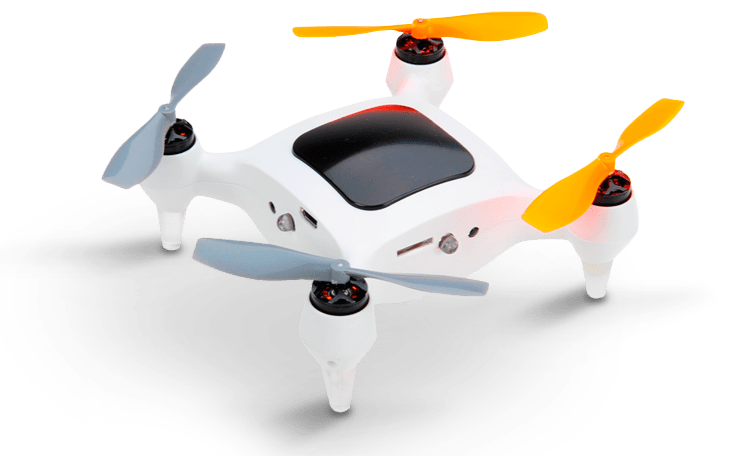
Micro drones are hot in the drone marketplace, as investors anticipate the passage of micro drone regulations.
While the regulatory environment for commercial drone applications like drone delivery remain unclear, the FAA’s move towards risk-based classifications and the micro drone classifications proposed in FAA Reauthorization packages are leading drone investors rushing to search for opportunities in the tiny drone market.
Drone technology seems to be moving in the same direction as mobile phones – remember the suitcase sized mobile telephone that served as the grandfather to today’s handheld devices? Investors hope that micro drone technology will advance to allow tiny drones to perform many of the same commercial functions as larger UAS – without the strict regulations and pilot requirements that larger drones face. A quick glance at drone opportunities listed on IndiGoGo shows that five of the first eight are nano or micro drone technology. Onagofly, the first on the list, received nearly $3 million in crowdfunding. The company produces a palm sized drone that carries a high resolution camera combined with GPS and obstacle avoidance – making it a possible tool for many commercial drone applications.
Another drone startup Aerobo, currently angel funded and raising a Series A round, introduced their micro drone at the SXSW conference earlier this month. The introduction of the “Mini” was accompanied by representatives of the FAA, indicating their support of technology that would seem to combine functionality that commercial consumers require with a low risk profile according to federal regulators. Aerobo already has an impressive list of clients in the broadcast media industry.
The proposed micro drone classification could make it possible for commercial drone companies to fly without a licensed pilot or meet other requirements for larger drones; other advantages – cost and portability – could make the micro drone the main player for applications that don’t require a heavy payload.
Investors seem to be taking the bet, as they seek more opportunities for smaller and smaller drones.

Miriam McNabb is the Editor-in-Chief of DRONELIFE and CEO of JobForDrones, a professional drone services marketplace, and a fascinated observer of the emerging drone industry and the regulatory environment for drones. Miriam has penned over 3,000 articles focused on the commercial drone space and is an international speaker and recognized figure in the industry. Miriam has a degree from the University of Chicago and over 20 years of experience in high tech sales and marketing for new technologies.
For drone industry consulting or writing, Email Miriam.
TWITTER:@spaldingbarker
Subscribe to DroneLife here.